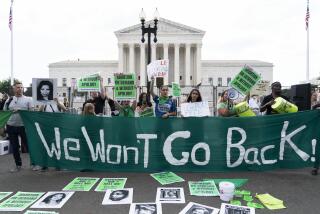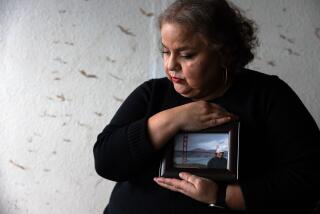Readers React: Korematsu decision shows how wrong the Supreme Court can be
To the editor: In recent weeks I have read statements justifying the banning of Muslim immigrants from coming to America that cite the internment of Japanese Americans as a precedent. Those who oppose such a ban also point to the internment. (“The Japanese American internment decision: A dangerous relic,” Opinion, Dec. 18)
As op-ed article writers John Inazu and Karen Tani state, Japanese American citizens lost their property and their liberty during World War II. To be clear, many lost their homes, farms, businesses and livelihoods.
Appallingly, young men from those camps were drafted to fight in Europe while their families remained behind barbed wire. All of this happened to loyal Americans living in America and under our Constitution that was to supposed to protect them.
A more apt comparison for today is the Gentlemen’s Agreement with Japan in 1907 to keep Japanese workers from coming to America. Clearly, that was not one of America’s better moments; and just as clearly, forcing Japanese Americans into internment camps was one of our worst.
Josef Colman, Santa Monica
..
To the editor: Although legal scholars regard the Korematsu decision upholding Japanese American internment as among the Supreme Court’s worst, I doubt that it will ever be officially overruled. It’s hard to imagine a case with attorneys citing Korematsu going far, much less to the Supreme Court.
The Dred Scott decision, which is generally regarded as even worse than Korematsu, has never been formally overruled, and the world seems to have survived. Perhaps we are all better off with those dreadful decisions remaining to remind us of how wrong the court can be.
Arthur Armstrong, Manhattan Beach
Follow the Opinion section on Twitter @latimesopinion and Facebook
More to Read
A cure for the common opinion
Get thought-provoking perspectives with our weekly newsletter.
You may occasionally receive promotional content from the Los Angeles Times.






